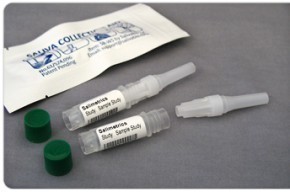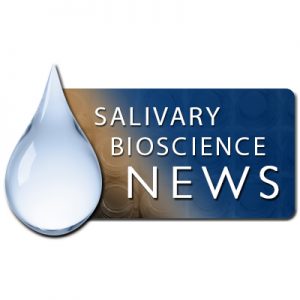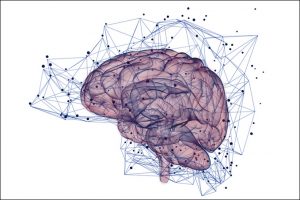*Note: Salimetrics provides this information for research use only (RUO). Information is not provided to promote off-label use of medical devices. Please consult the full-text article.
SalivaBio’s Saliva Collection Aid Receives Patent Approval
SalivaBio’s Saliva Collection Aid Receives Patent Approval (September 25, 2016) SalivaBio, LLC, developers of innovative, easy to use saliva collection devices, and Johns Hopkins University announced today that they have received final approval from the United States Patent Office for their Saliva Collection Aid (SCA). The Saliva Collection Aid simplifies the collection of passive drool [...]Stress Physiology in Infancy and Early Childhood: Cortisol Flexibility, Attunement and Coordination
Long-term stability of diurnal salivary cortisol and alpha-amylase secretion patterns Author: Atkinson L, et al (2016), J Neuroendocrinol Research on stress physiology in infancy has assumed increasing importance due to its lifelong implications. In this review, we focus on measurement of hypothalamic-pituitary-adrenal (HPA) function, in particular, and on complementary autonomic processes. We suggest that the […]
Testosterone levels impair emotion-recognition ability during test
Testosterone reduces functional connectivity during the ‘Reading the Mind in the Eyes’ Test. Author: Bos PA, et al (2016), Psychoneuroendocrinology. Women on average outperform men in cognitive-empathic abilities, such as the capacity to infer motives from the bodily cues of others, which is vital for effective social interaction. The steroid hormone testosterone is thought to […]
Salimetrics Supports Adolescent Brain Cognitive Development (ABCD) Study with Salivary Bioscience
Salimetrics Supports Adolescent Brain Cognitive Development (ABCD) Study with Salivary Bioscience Salimetrics is supporting the largest National Institutes of Health (NIH) sponsored research project focused on brain development and adolescent health with efficient, participant-centric biological data from saliva samples. As part of its mission to support scientific studies that turn discovery into better health, the [...]Identifying sampling schemes to capture key salivary cortisol responses
Balancing Scientific Accuracy and Participant Burden: Testing the Impact of Sampling Intensity on Diurnal Cortisol Indices. Author: Hoyt LT, et al (2016), Stress. Despite the increasing popularity of incorporating salivary cortisol measurement into health and social science research, relatively little empirical work has been conducted on the number of saliva samples across the day required […]
Salivary Cortisol and psychobiological influences on parental caregiving behaviors
Psychobiological influences on maternal sensitivity in the context of adversity Author: Finegood ED, et al (2016), Dev Psychol. This study evaluated prospective longitudinal relations among an index of poverty-related cumulative risk, maternal salivary cortisol, child negative affect, and maternal sensitivity across the first 2 postpartum years. Participants included 1,180 biological mothers residing in rural and […]
Review: Pathogen-Specific Antibody Biomarkers to Estimate Waterborne Infections
Use of Pathogen-Specific Antibody Biomarkers to Estimate Waterborne Infections in Population-Based Settings Author: Exum NG, et al (2016), Curr Environ Health Rep. PURPOSE OF REVIEW: This review discusses the utility of pathogen-specific antibody biomarkers for improving estimates of the population burden of waterborne infections, assessing the fraction of infections that can be prevented by specific […]
Latent trait salivary cortisol & stress-related cardiovascular risk factors
Salivary latent trait cortisol (LTC): Relation to lipids, blood pressure, and body composition in middle childhood Author: Yeung EW, et al (2016), Psychoneuroendocrinology. Adversity experienced early in life has the potential to influence physical health later in life. The stress-health relation may be partially explained by stress-related effects on cardiovascular risk factors. This study explored […]
Autonomic and Inflammatory Responses Moderated by Stress Appraisals and Affect
Coordination of cortisol response to social evaluative threat with autonomic and inflammatory responses is moderated by stress appraisals and affect Author: Laurent HK, et al (2016), Biol Psychol. Recent approaches to stress regulation have emphasized coordination among multiple biological systems. This study builds on evidence that hypothalamic-pituitary-adrenal (HPA) axis activity should be considered in coordination […]
Nonhuman primates mirror human early life adversity & salivary cortisol/alpha-amylase responses
Effects of early life adversity on cortisol/salivary alpha-amylase symmetry in free-ranging juvenile rhesus macaques. Author: Petrullo LA, et al (2016), Horm Behav. Early life adversity (ELA) affects physiological and behavioral development. One key component is the relationship between the developing Hypothalamic-Pituitary-Adrenal (HPA) axis and the Sympathetic Nervous System (SNS). Recent studies suggest a relationship between […]
Sex hormone variations in both sexes may be important when investigating stress physiology
Sex hormones adjust “sex-specific” reactive and diurnal cortisol profiles. Author: Author: Juster, et al (2015), Psychoneuroendocrinology Sex differences in stress hormone functions are presumed to depend on sex hormones. And yet, surprisingly few psychoneuroendocrine studies actually assess within-sex variations of testosterone, estradiol, and progesterone when investigating sex-specific activities of the hypothalamic-pituitary-adrenal axis. In this methodological […]
Latent Trait Cortisol level reflects accumulation of both distal and recent forms of stress
Individual differences in early adolescents’ latent trait cortisol (LTC): Relation to recent acute and chronic stress. Author: Stroud CB, et al (2016), Psychoneuroendocrinology Research suggests that environmental stress contributes to health by altering the regulation of the hypothalamic pituitary adrenal (HPA) axis. Recent evidence indicates that early life stress alters trait indicators of HPA axis […]
40 years of testosterone in biosociology research
Testosterone in biosociology: A memoir Author: Mazur (2016), Hormones and Behavior The author looks back at his four decades of research on testosterone in the context of biosociology – its accomplishments, pitfalls, outstanding questions, and future directions. View Abstract Keywords: Testosterone
Inconsistencies limit randomized controlled trials measuring salivary diurnal cortisol
Use of Salivary Diurnal Cortisol as an Outcome Measure in Randomised Controlled Trials: a Systematic Review. Author: Ryan, et al (2015), Annals of Behavioral Medicine BACKGROUND: Dysregulation of the hypothalamic-pituitary-adrenal (HPA) axis is associated with diverse adverse health outcomes, making it an important therapeutic target. Measurement of the diurnal rhythm of cortisol secretion provides a […]
Salivary bioscience enables anabolic hormone profiles in elite military men
Anabolic hormone profiles in elite military men. Author: Taylor MK, et al (2016), Steroids. This study recently characterized the awakening responses and daily profiles of the catabolic stress hormone cortisol in elite military men. Anabolic hormones follow a similar daily pattern and may counteract the catabolic effects of cortisol. This companion report is the first […]
 Contact: Salimetrics (USA)
Contact: Salimetrics (USA)


